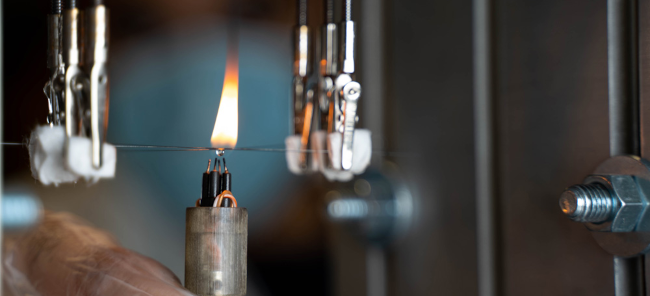
UBC researchers cook up cleaner, more powerful jet fuel
By DE staff
General Aerospace EnergyDoping with graphene nanomaterial holds promise to boost jet fuel’s power while lessening environmental impact.

A droplet of fuel mixed with nanomaterials is ignited during an experiment in UBCO’s Combustion for Propulsion and Power Lab.
(Photo credit: UBC Okanagan)
“When it comes to fuel, we are always searching for a consistent response of the fuel within key parameters as they relate to how it ignites, burns and maintains strength,” said lead author and UBCO doctoral student, Sepehr Mosadegh. “Most people have a general understanding of the composition of gasoline and jet fuel, and that it is a mixture of many hydrocarbons. But they may not think about how combining these with nanomaterials and burning them can result in dramatically more powerful and cleaner engines.”
Based out of the UBCO School of Engineering’s Combustion for Propulsion and Power Laboratory (CPPL), the research project is collaborating with Ontario-based ZEN Graphene Solutions to study how the mixture could improve jet fuel’s combustion properties.
Using high-speed cameras and microscopy analysis, the researchers discovered that adding microscopic graphene oxide to ethanol improved the fuel’s burn rate by about eight per cent. In addition, the researchers say the added nanomaterials alter the heat transfer and the fuel’s evaporation rate, impacting the overall burning rate.
To date, the team has published the results for doped ethanol, but expect to have promising results for other liquid fuels such as jet A and diesel. Their research is funded by the Natural Sciences and Engineering Research Council Canada and appears in journal, Combustion and Flame.
https://ok.ubc.ca
